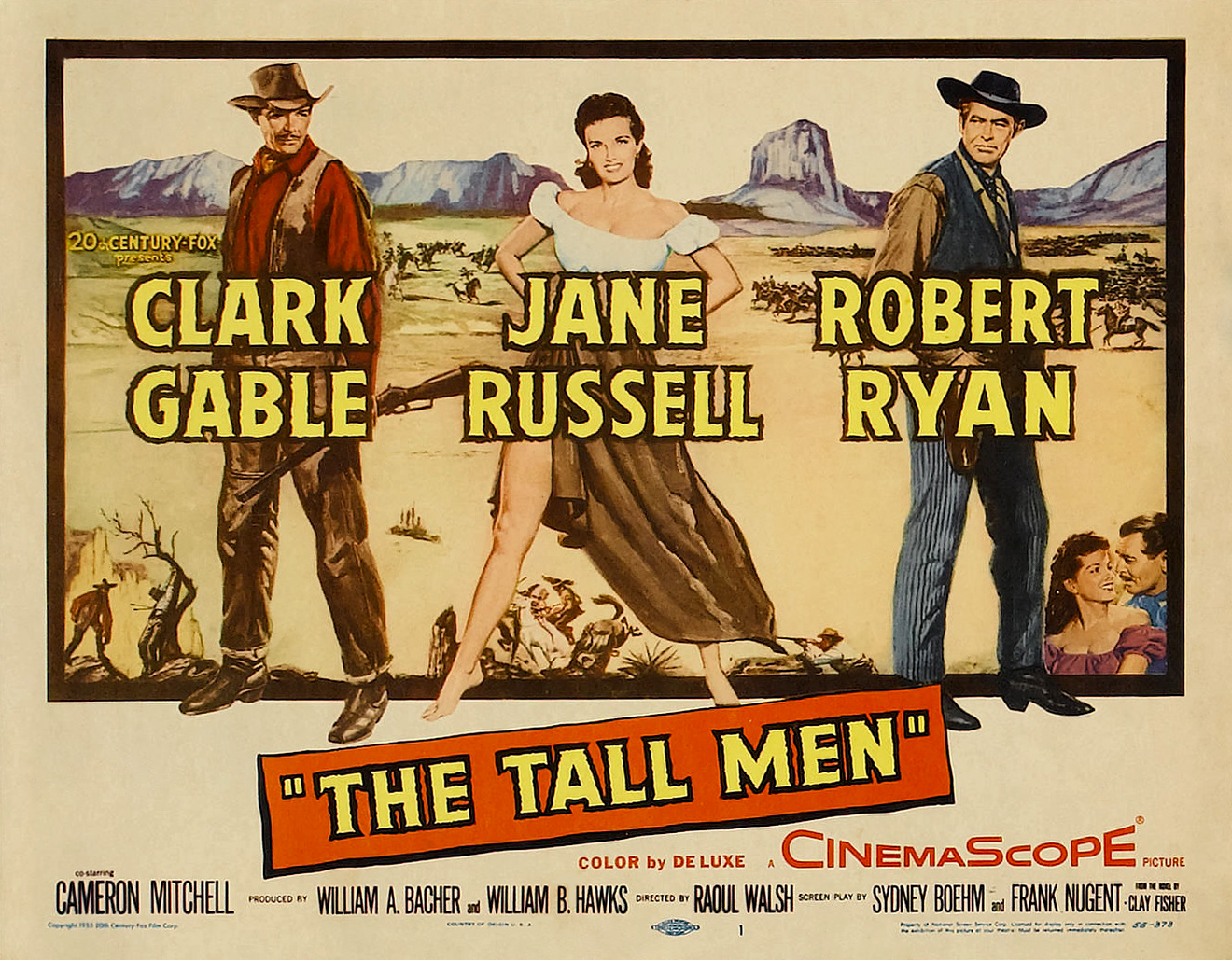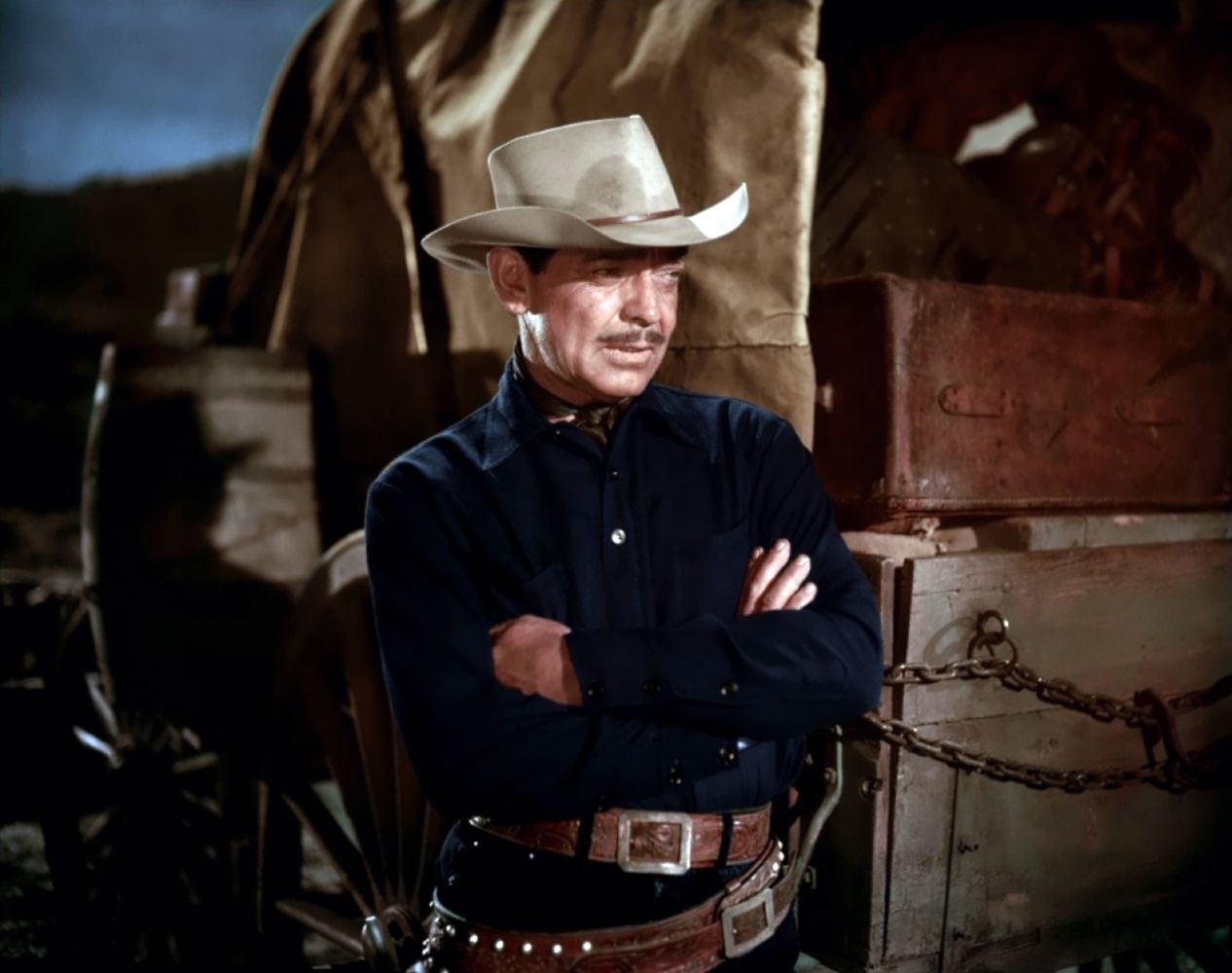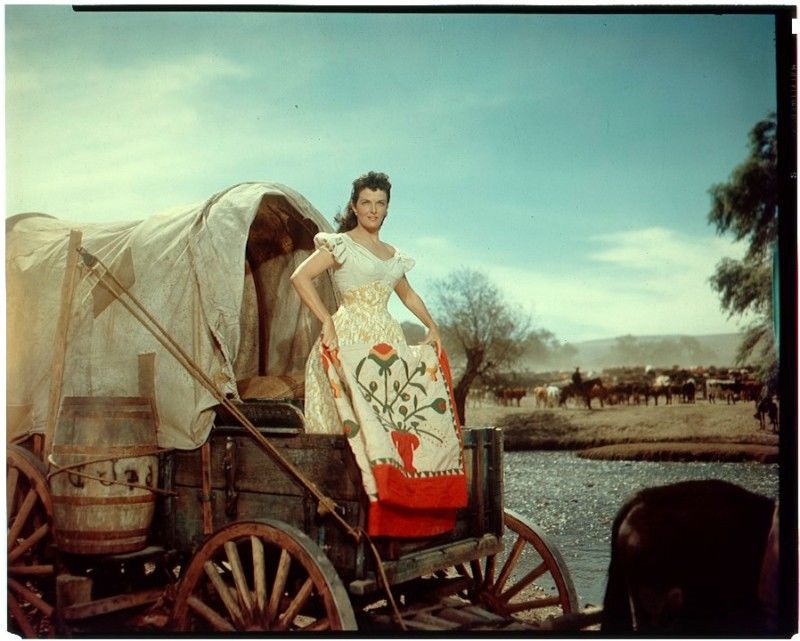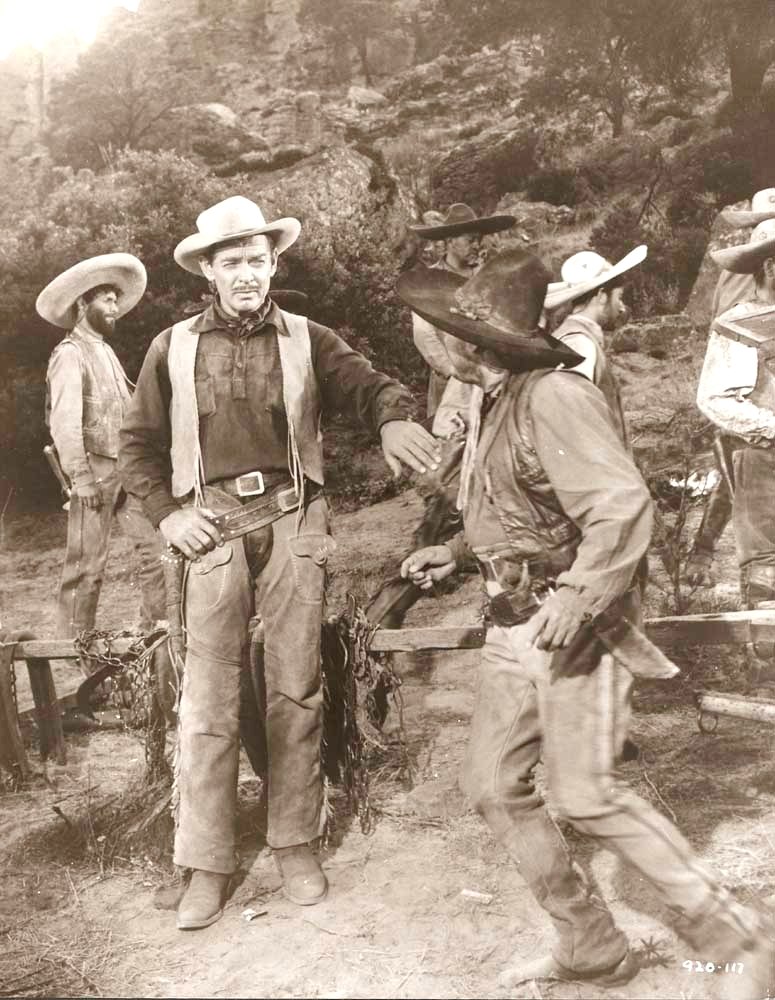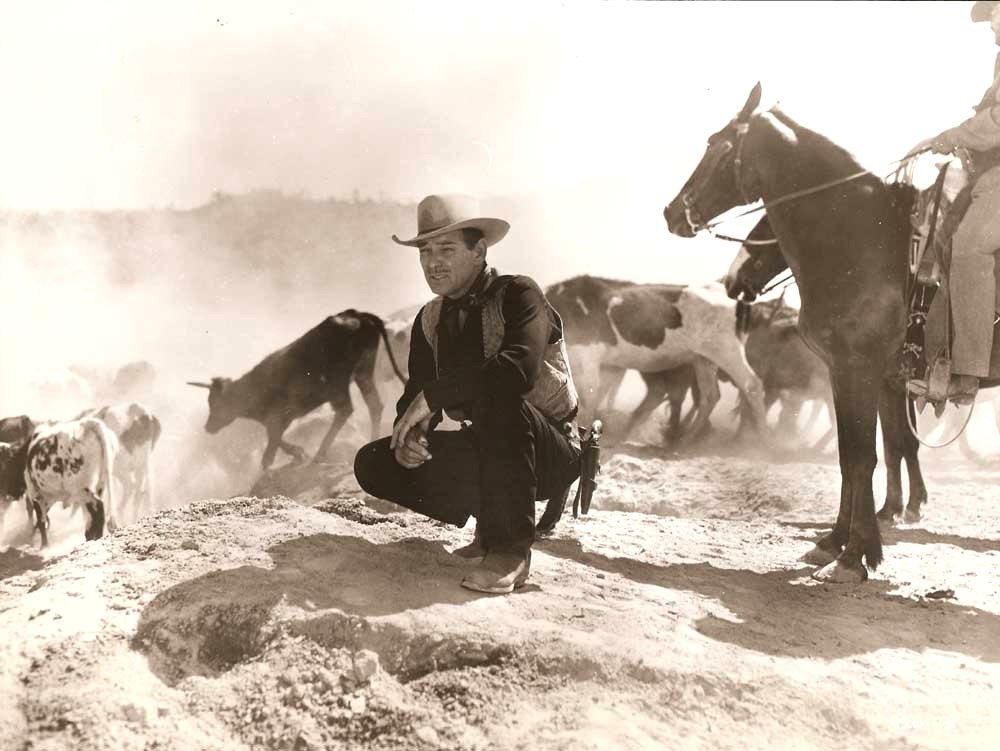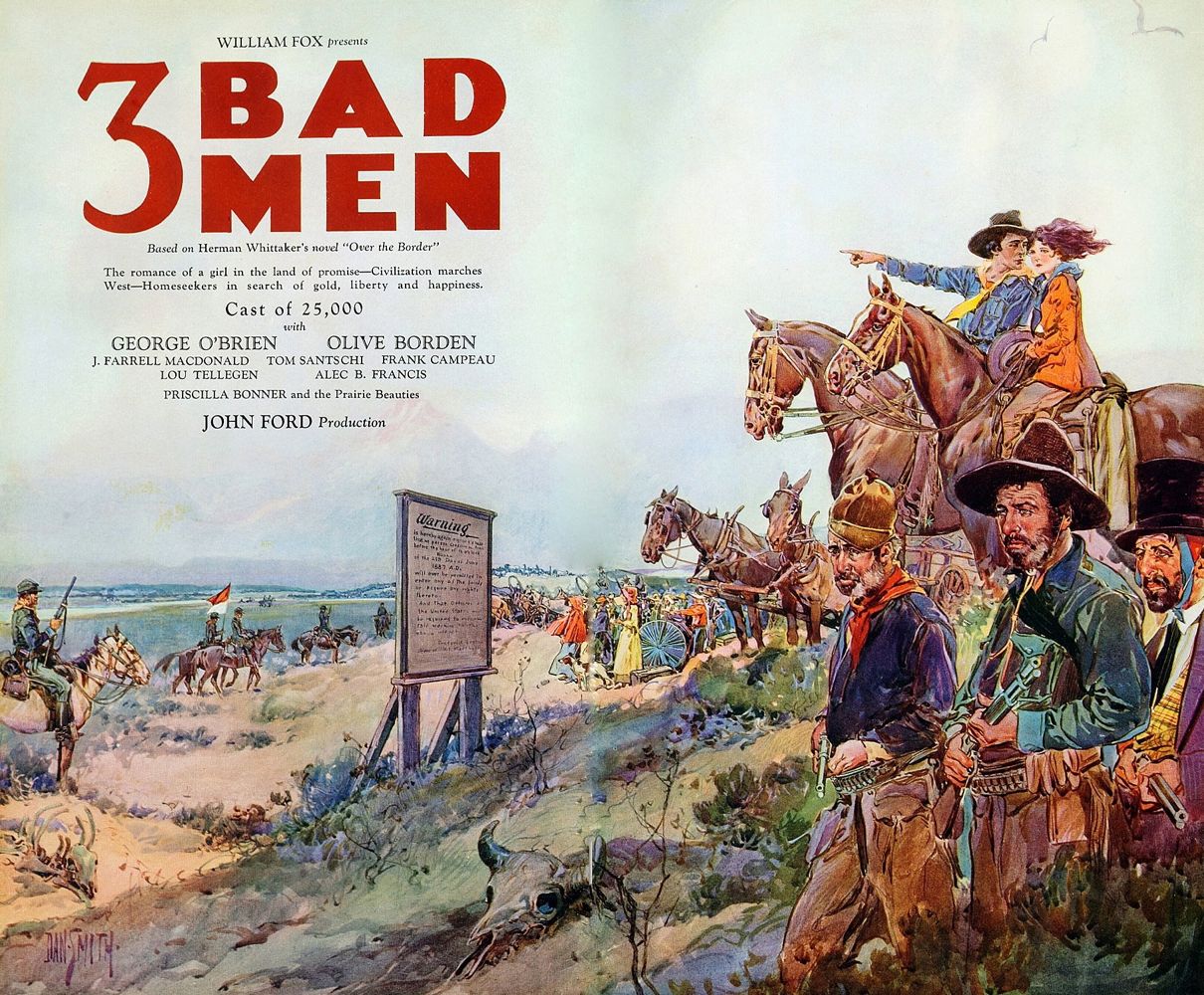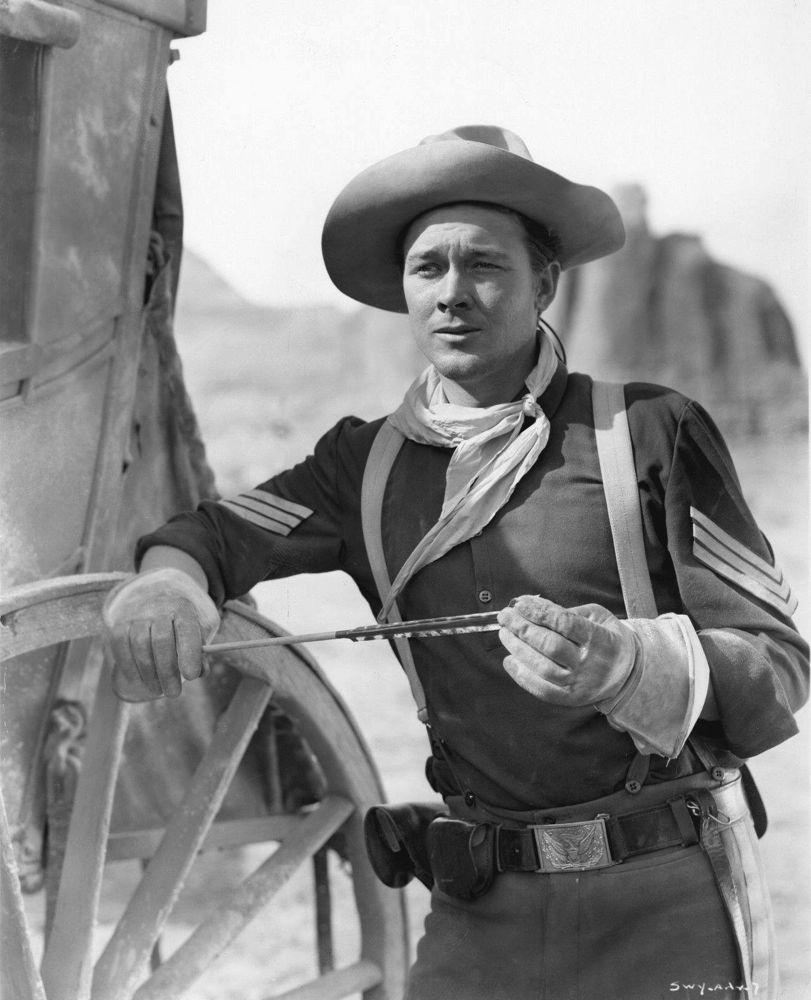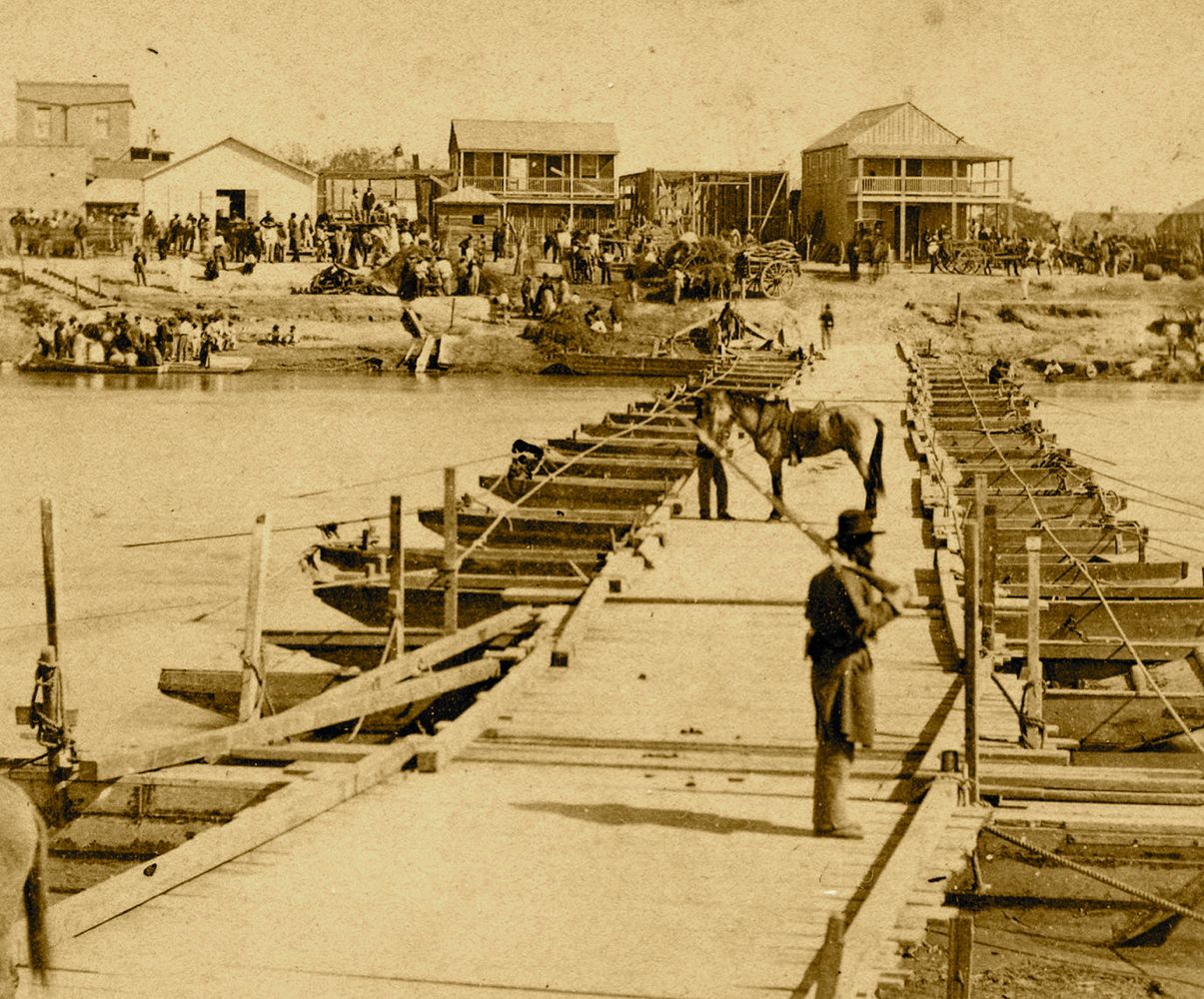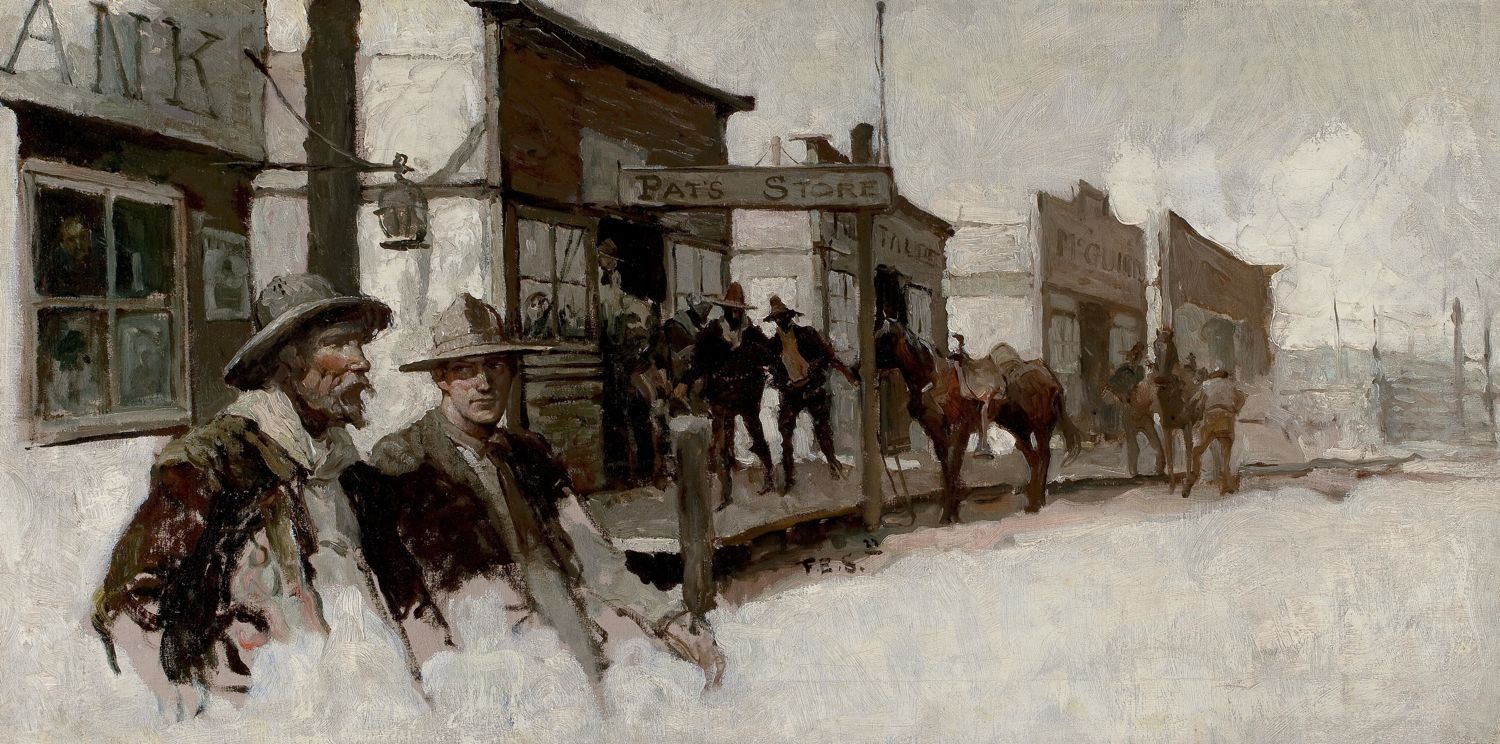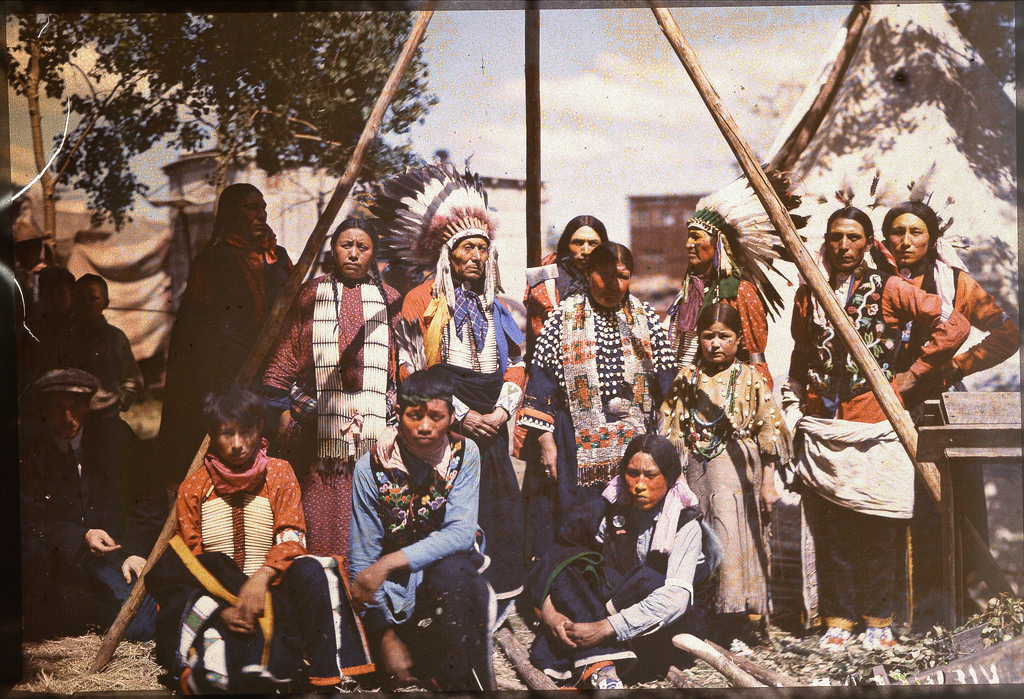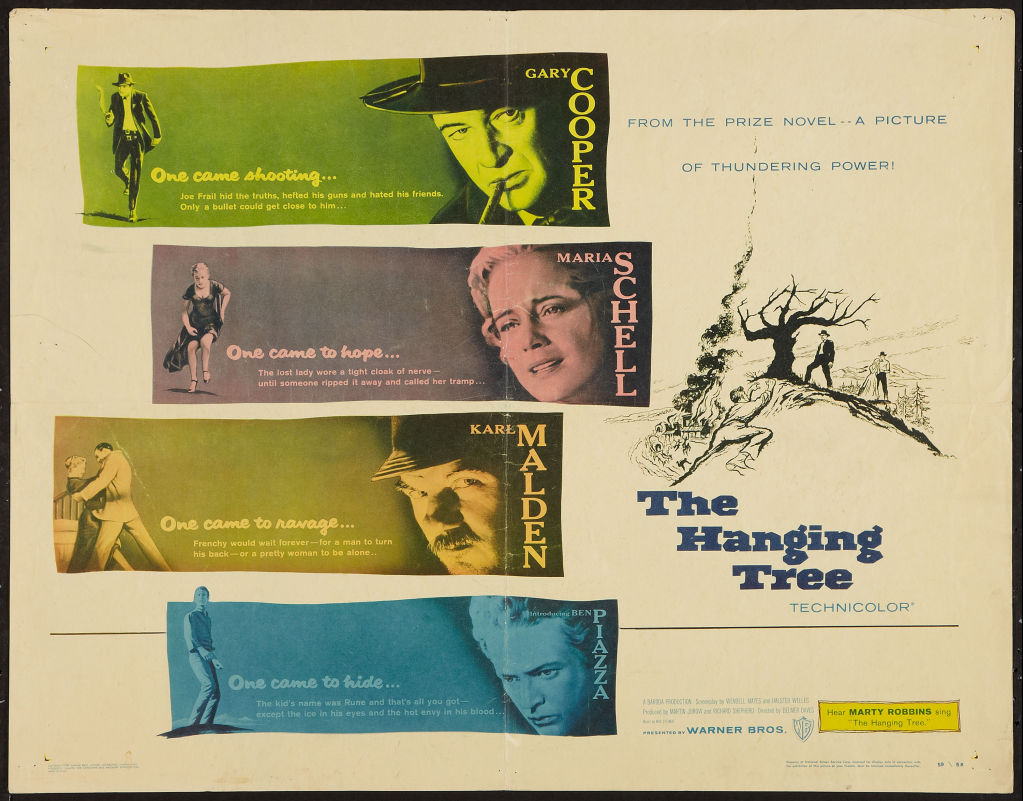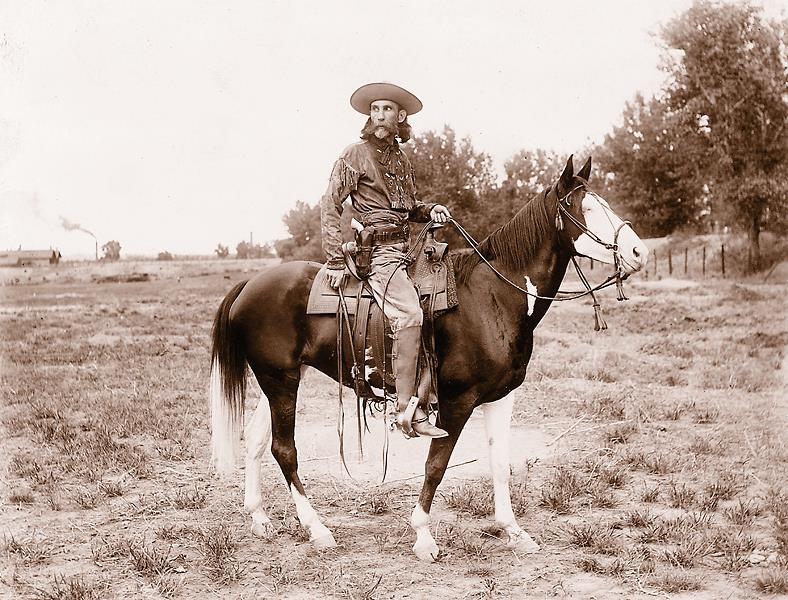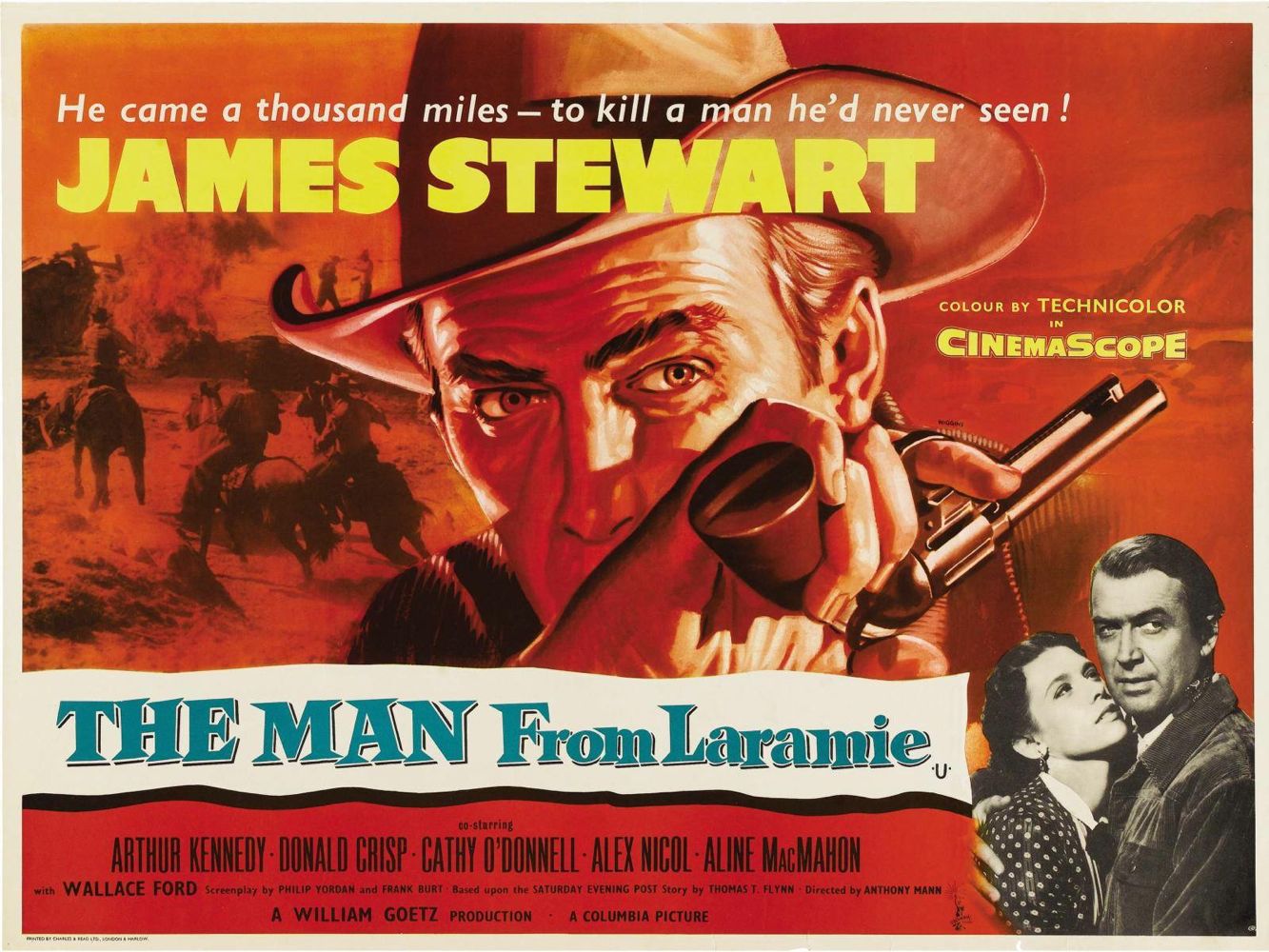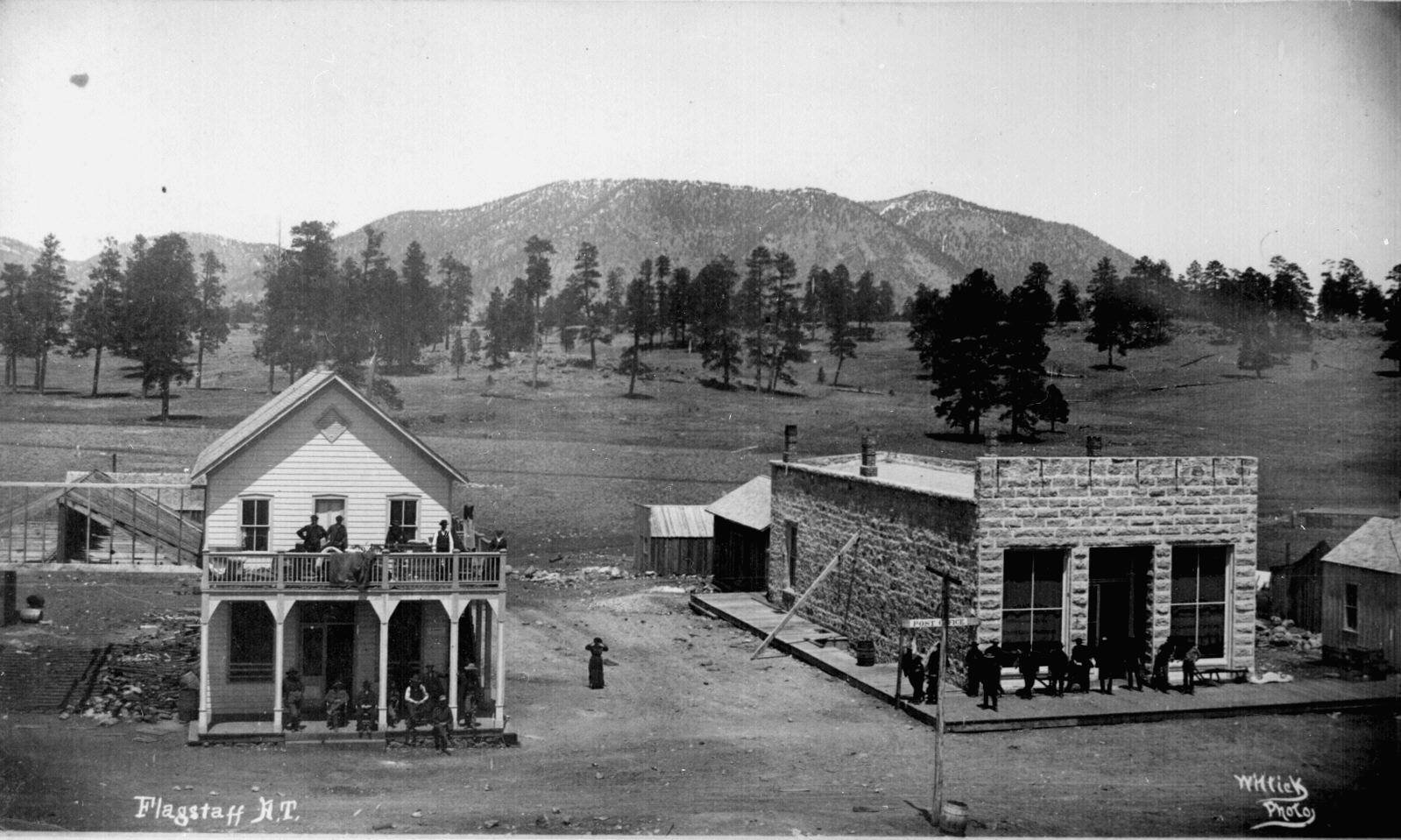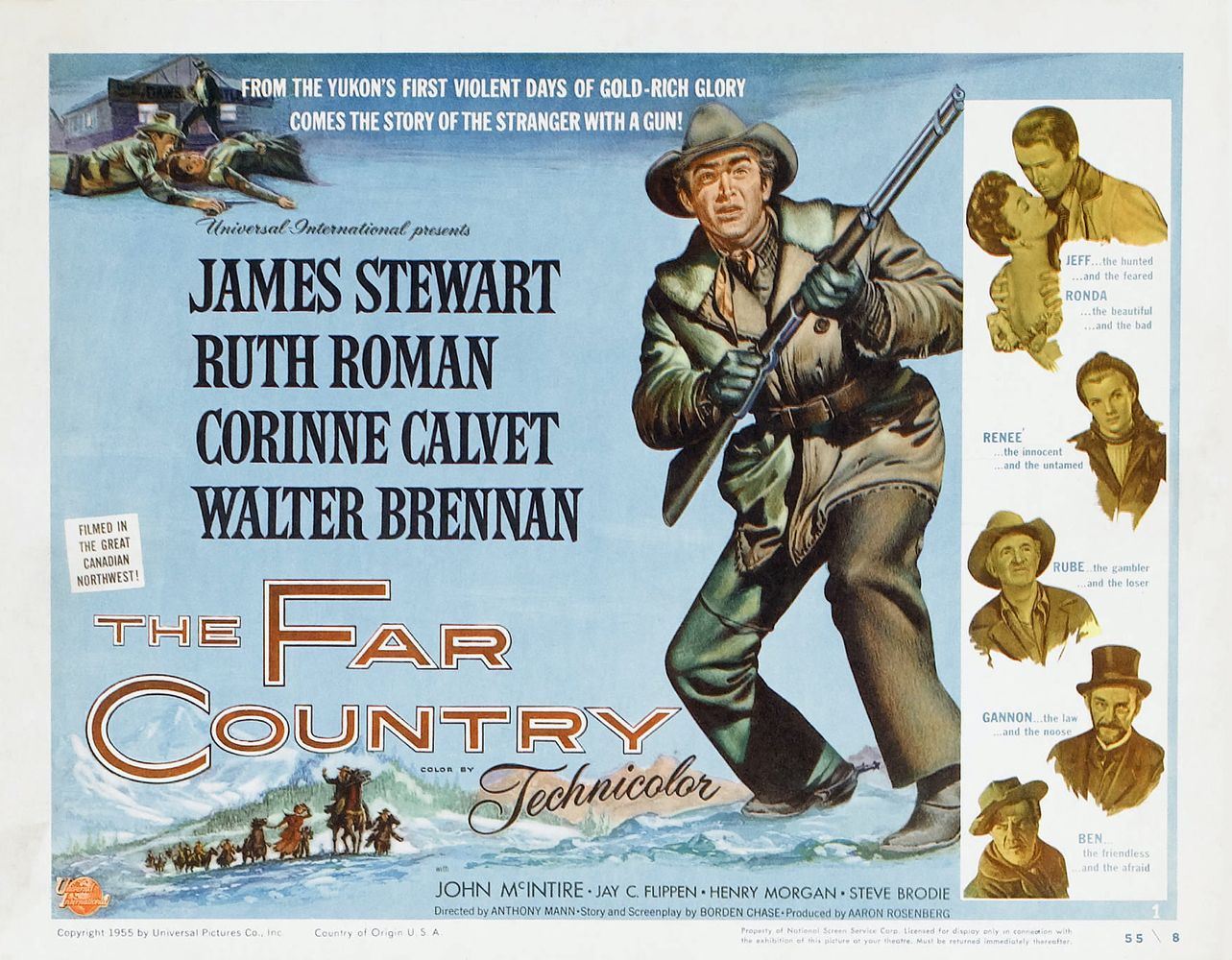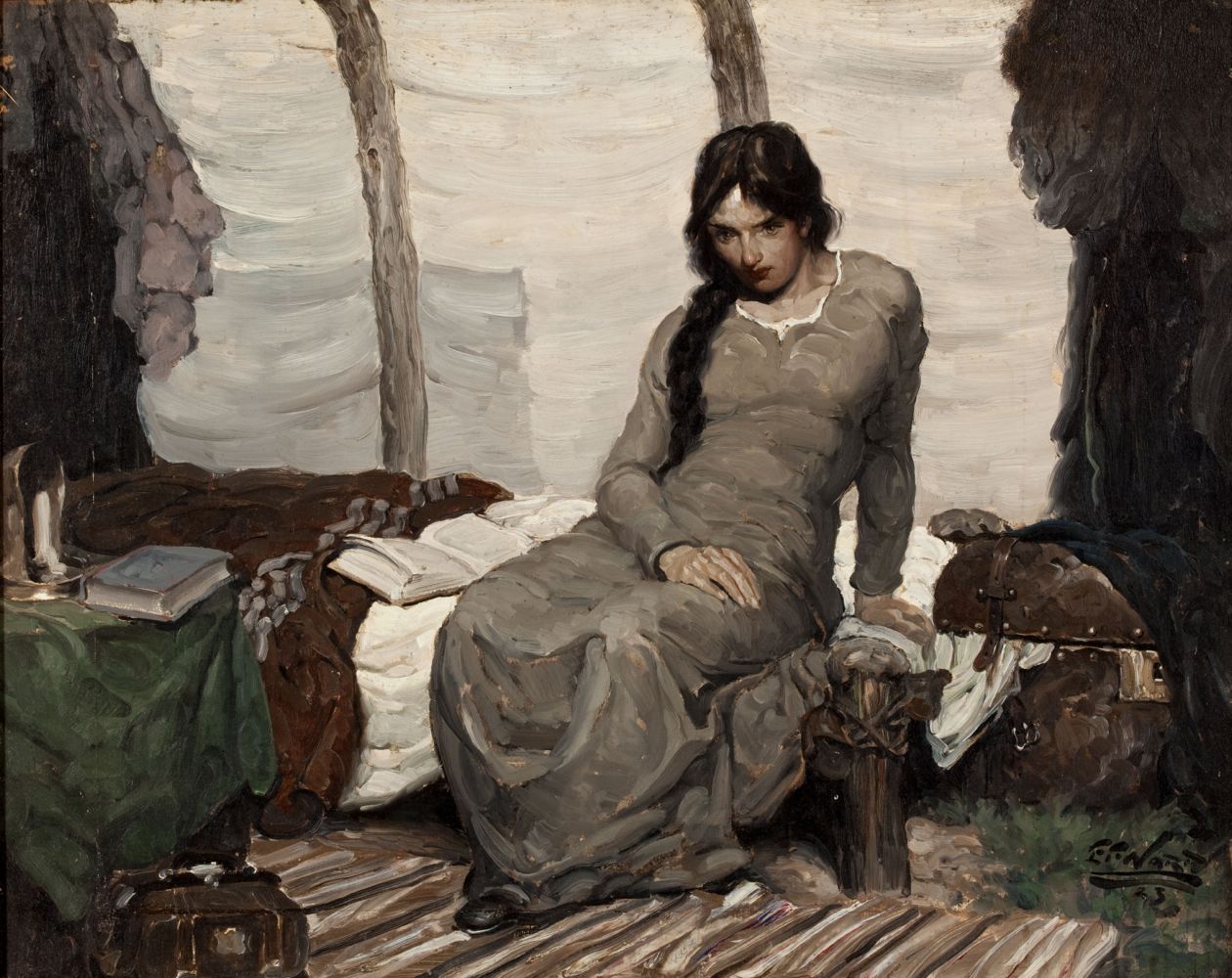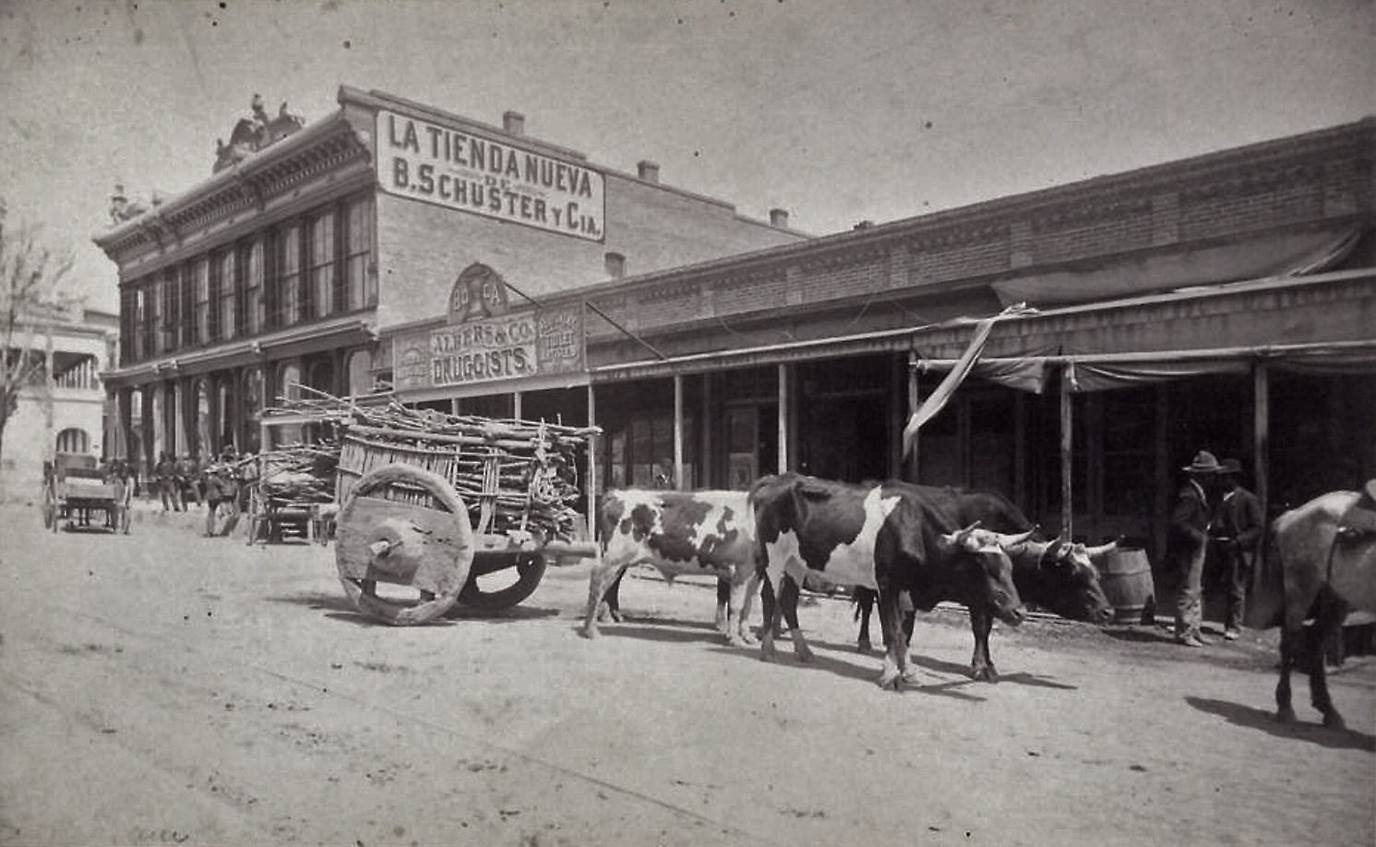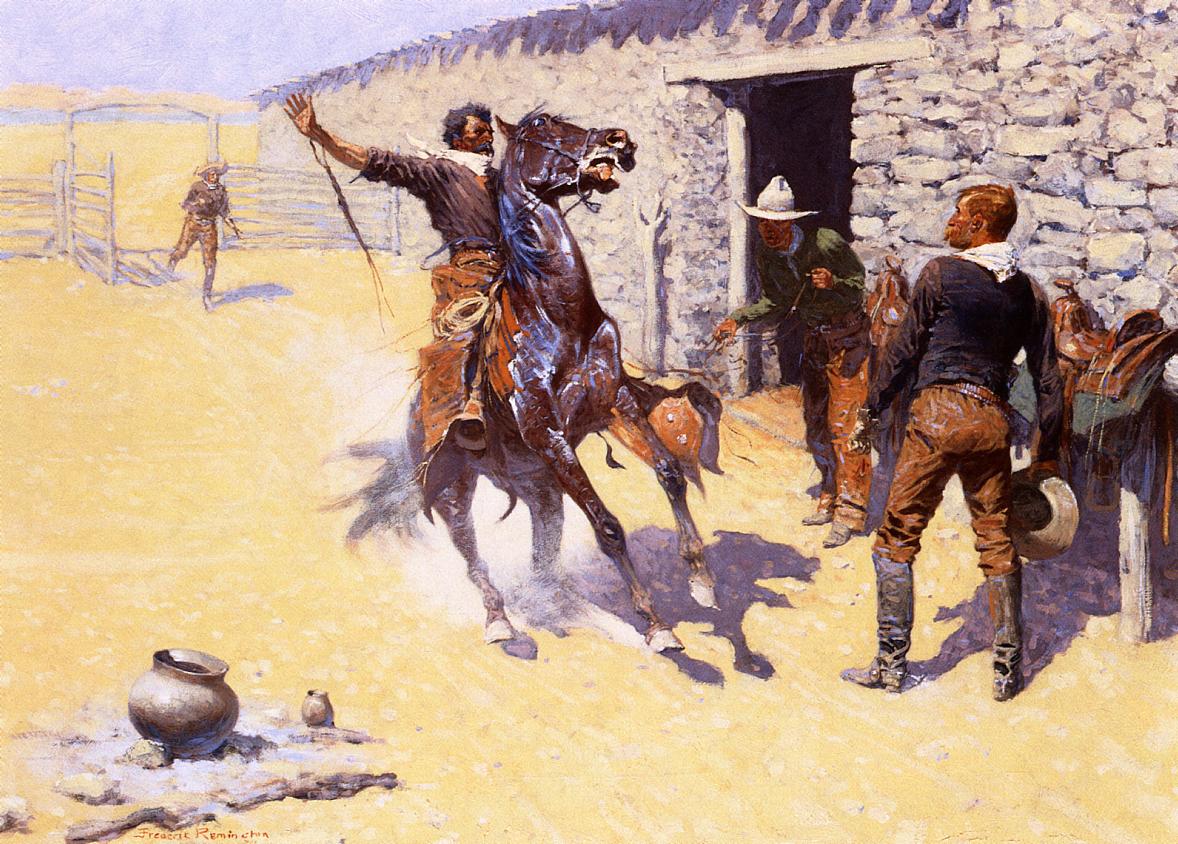Clark Gable didn’t make many Westerns and never made a great one, except for, arguably, the modern Western The Misfits. He never had to grind out a living in B-Westerns, either. It’s a shame, because he looks terrific on a horse and has the physical self-possession of a classic Western hero.
It’s odd, too, because his breakthrough as an actor came as the result of a Western, The Painted Desert, his first talkie, from 1931. He played second lead to star William Boyd but got so much fan mail that the studio which had him under contract, MGM, decided he was star material himself.
The Tall Men, from 1955, directed by Raoul Walsh with his customary craft, is pretty close to being a great Western, however. Gable was doubled a lot in his riding scenes on location during the production, having already suffered his second heart attack by 1955, and much of the first half of the film is studio bound, but this is no great loss, since the heart of it is a lively love triangle between Gable, Robert Ryan and Jane Russell, heavy on dry and amusing banter between the principals.
Russell gives one of her best performances in the film as the ambitious, down-to-earth Nella Turner. It’s a pleasure to watch Gable’s easy, insistently masculine style of sparring with her — there was never an actor who conveyed a cocksure but amiable virility quite the way Gable did. He’s got a lot of woman to work with here in Russell, and he seems to enjoy the challenge thoroughly.
The second half of the film opens up suddenly, and somewhat surprisingly, to an epic scope, as the love triangle hits the trail on a cattle drive from Texas to Montana. It becomes a different kind of film — grand, poetic, rooted in the landscape. It has passages with horses and cattle and wagons and river crossings that recall passages in Walsh’s visually astonishing The Big Trail, from 1930.
The cattle drive mounts to an action climax that doesn’t really deliver the goods visually or dramatically, but up to that moment it’s riveting. And somehow Gable’s presence knits all the ill-fitting parts of the picture together.
The Tall Men may occupy a place in the second rung of the Western canon, but as plain old-fashioned Western entertainment goes it more than earns its spurs.

